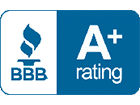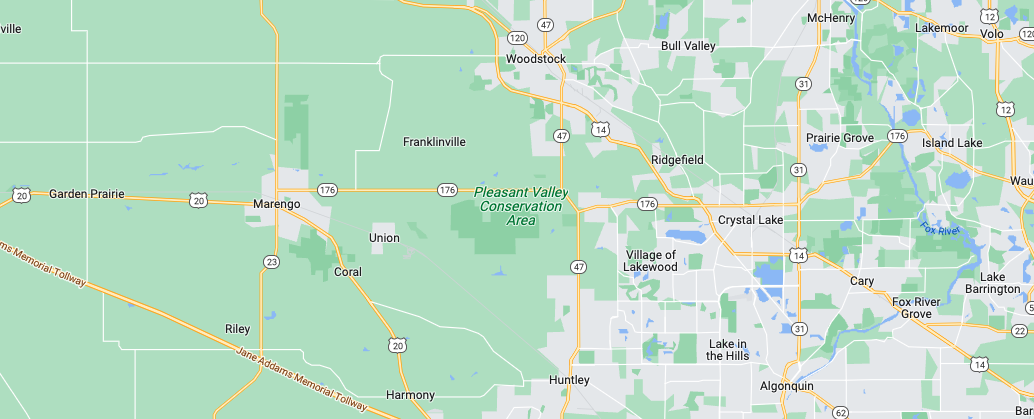To keep your HVAC system running in tip-top shape, we recommend a maintenance appointment twice a year (once for heat, once for air conditioning). This way, a technician can check your filters, coils, wiring, housing, motor, and more to make sure you’re getting the most out of your system. This will save you on energy and repair costs, keep your system running smoothly and efficiently, and make it last longer. The longer you put off HVAC maintenance, the worse your units will perform, and the more likely it is that it will break down. Trying to save money by delaying maintenance may backfire by forcing you to pay more on energy bills, and potentially, on repairs if a serious issue arises with your system.
-
How often should I service my HVAC system?
-
-
How do I know when I need to replace my HVAC system?
-
- Your air conditioner/furnace is more than 10 years old. An air conditioner/furnace, if properly maintained, can last up to 15 years, but replacing it at 10 years can be more cost-effective. Though your current system may last another 5 years, replacing it now can lower your energy costs, essentially allowing the system to pay for itself.
- Frequent repairs. If your air conditioner/furnace requires frequent repairs, it is highly recommended you replace it, as it is very costly to continue paying for repairs. While it might cost more money upfront, installing a new system will save you money long-term.
- If you notice certain rooms getting too much air and others not enough, it is probably time to replace your current system. The older your system gets, the less efficient it is at cooling properly.
- According to gov, the average lifespan of your central HVAC system is between 15 and 20 years. This assumes, however, that you support your equipment with regularly scheduled maintenance. We’ve found that systems without regular maintenance last between 8 and 10 years, while systems with proper maintenance last between 20 and 25 years.
- This also assumes that your heating and cooling equipment has been installed properly. Besides regular maintenance, proper installation is the most important factor when estimating your system’s “lifespan.” According to gov, over half of all new HVAC systems do not live up to rated efficiency levels. This not only negatively affects your utility bill but also reduces the lifespan of your unit. “In fact, improper installation can reduce performance by as much as 30.”
-
How can I heat my home more efficiently?
-
- Once again, the most effective solution is to replace your furnace with a newer, more efficient furnace. Modern high-efficiency furnaces could save you 25% on your energy bills, which means the expense of purchasing a new furnace should pay for itself fairly quickly.
- Just as you can set your thermostat to a higher temperature for greater efficiency in the summer, lowering the temperature on your thermostat for at least a portion of the day can save you money on your energy bill in the winter.
- Just like in the summer, avoid blocking your vents to ensure that heat is evenly distributed throughout the house. Save energy by closing vents in rooms that you rarely use.
- While it may seem counter-intuitive, ceiling fans can help heat your home in the winter, if the blades spin clockwise. Therefore, install ceiling fans for improved energy efficiency in both the summer and winter.
- Finally, annual furnace maintenance will ensure that your furnace is running smoothly and efficiently and catch any potential issues.
-
What are some ways I could keep my home cool more efficiently?
-
There are plenty of ways to improve the cooling efficiency in your home. First, you could replace your existing air conditioner with a newer, more efficient one. This will significantly lower your energy bills and cool your home much more effectively. Schedule a consultation so we can help you find a unit that fits your home.
If you aren’t ready to upgrade your air conditioner, you can improve efficiency by setting your thermostat to a higher temperature. During the summer, set your thermostat to 75 degrees or higher. Every degree counts: just 1 degree below 75 degrees will cause your energy bill to go up 3 to 5%.
Another small way to increase your home’s cooling efficiency is to avoid blocking vents. Move any furniture or curtains so that air will be evenly distributed throughout your home.
Additionally, you can install ceiling fans. The U.S. Department of Energy says that a single ceiling fan “will allow you to raise the thermostat setting about 4 degrees with no reduction in comfort.” As we already mentioned, every degree will save you money on your energy bill.
Finally, make sure to get annual maintenance from a licensed technician to ensure that your system is running as efficiently as possible, and to fix any potential issues.
-
What are the advantages of high-efficiency air filters?
-
Proper air filtration is crucial to the health of both your HVAC system and your family. Air filters prevent dust and dirt from building up in your system to keep it performing at its best. High-efficiency filters do a better job of this and remove dust, dirt, mold, and more from the air. This is especially useful if you have allergies or respiratory issues. High-efficiency filters are better, but not 100% necessary. Whether or not you choose to use them, remember to change your filters regularly.
-
Why Is Changing Your Filter Is Important?
-
Air filters trap pet hair, dust, and other irritating particles so that your air conditioning system delivers fresh, clean air back into your home. Eventually, the filter traps so much dust and debris that air can’t properly filter or travel to the HVAC unit, leading to:
- High energy bills—When an HVAC filter is clogged, your system has to work harder to pull air through to cool or heat the room. This causes it to run for longer periods of time, increasing the energy your home uses.
- Health concerns—If a filter isn’t working properly, dust and allergens can circulate throughout your home and cause allergies and respiratory illnesses.
- System failure—An HVAC system has to work hard to pull air through a clogged filter. This continuous strain on the unit can cause it to break, causing you to pay for expensive repairs or replacements.
2 Ways an Air Filter Can Kill Your Air Conditioner and Furnace
It’s ironic. Your air filter’s job is to prevent dust and other large particles from ruining your heating and cooling system. But 2 things can turn that safety net into your wallet’s worst nightmare by ruining what it was meant to protect.
Letting the air filter work overtime
If you’ve ever worked overtime, you’ve probably realized that your quality of work decreased significantly.
The same could be said with your air filter. When you leave it in your return duct for too long and it gets caked in dirt, it’s no longer working efficiently.
Not only that, it’s actually hurting your heating and cooling system and raising your energy bills.
According to ENERGY STAR: “A dirty filter will slow down air flow and make the system work harder to keep you warm or cool—wasting energy. A clean filter will also prevent dust and dirt from building up in the system — leading to expensive maintenance and/or early system failure.”
Check your air filter once a month (especially during summer and winter months) and change it if it’s dirty. Standard fiberglass filters last between 1-3 months.
Being too much of a health nut
Some homeowners want cleaner air, so they buy an HVAC filter with a high “MERV rating.” This rating, which ranges from 1-20, represents how well filter can catch smaller airborne particles (“1” meaning it can only catch large airborne particles, “20” meaning it can catch very small airborne particles.)
Here’s the problem: Some filters with a high MERV rating can drop air pressure in your duct system, which can increase energy bills and damage your HVAC system.
For example, let’s say you have a pleated filter that’s 1-inch thick and has a 13 MERV rating. Because the filter is thin and the MERV is high, it reduces airflow into the duct system. And like we said before: low airflow = wasting energy. To make matters worse, this type of filter will reduce airflow even further once it gets dirty, which it will do very quickly.
Why? Because high MERV filters are designed to catch large and small particles and therefore will get dirty quickly. And since the filter is thin, the filter will quickly fill up with particles and block airflow.
So, does that mean you should never get a high MERV filter? No way! You just need the right kind of high MERV filter. A thicker filter (4-5 inches) has more surface area and therefore allows more room for air to pass through.Thick filters, due to their increased surface area, also have other benefits like:
- Higher dust-holding ability (meaning it can catch a lot without blocking airflow)
- Longer life (most pleated 4-in and 5-in-deep media filters will last between 6 months to a year between changes)
Do this: If you’re really interested in keeping your air clean, we’d suggest you get an air cleaner/purifier installed in your air ducts. Air cleaners, which have a thick media filter, can trap small particles, like pet dander and mold, without impeding air flow like a thin, pleated air filter would.
-
Why Indoor Air Quality matters to all of us?
-
It is a well-known fact that indoor environments can affect health of people who live In them. Ever since the dramatic rise in energy costs, air tightness in our homes, schools and buildings has created the phenomenon of “trapped indoor air pollutants”. Statistics show, we spend 93%* of our lives indoors! We live, work, grow & play in artificial environments. The concern is, are they healthy?
Did You Know that?
- Many colds, flues and respiratory illnesses are contracted indoors.
- 97% of all the particles in the air by count you cannot see.
- Children breathe 3 times faster and they tend to absorb more pollutants and toxic gases, VOC’s & vapors than adults.
- The growth of Allergy, Asthma & Respiratory illness track almost identically with the growth of A/C sales.
- The airtight syndrome is alive & well……our airtight homes & buildings trap indoor pollutants contributing to illness.
Outdoor Air is hard to control… Indoor Air can be purified by investing in a Air Sterilizer/Purifier.
-
What can I do to lower my energy bills?
-
There are plenty of things, such as:
- Install a programmable thermostat so you don’t waste air conditioning or heat while you’re not at home.
- Install ceiling fans and, when you can, use them help move your air conditioning to cool you down.
- Make sure your windows and doors are sealed properly so that they don’t let air in and make your HVAC system work harder.









